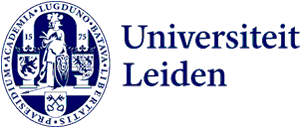
'The bachelor Public Administration made it easier for me to understand complicated topics'
Nienke Weijermars studied Public Administration at the Faculty of Governance and Global Affairs. While doing her bachelor’s, she enrolled in the minor in Journalism and New Media, followed by an internship at Dutch local newspaper Leidsch Dagblad: 'At Leidsch Dagblad, they really had time to teach me the ins and outs.'
Why did you choose to do an internship at Leidsch Dagblad?
'I decided to do a minor in journalism because I always found public administration a bit theoretical. So, I was keen to do something a bit more practical. I always liked the news and when I found out I could do an internship during the minor, I thought it would be perfect. What appealed to me was that I’d be able to use the things I’d learned.'

What did your internship look like?
'The first six weeks, I worked at the regional editorial office of the Duin- en Bollenstreek, and then I did a six-week internship at the editorial office of the city of Leiden. I went to many places where I was able to talk to people if something special had happened. I also made news reports.'
Was there anything you liked best?
'Going to places you wouldn’t normally go to. I didn't really enjoy things like demonstrations as much because they were quite stressful. I didn't always know how to position myself, because some people thought I was one of the demonstrators and, of course, there was a lot of experienced press present. That could be quite overwhelming.'
Was the internship anything like you expected it to be?
'It was different from what I expected. During the minor you were taught how to write but things are always different when it comes down to it. I had to write a piece of 200 words, and it took me half a day, because I had no idea how that works. I did learn a lot at the Leidsch Dagblad. Journalism really is something different when compared to public administration.'
How did you experience your background in public administration while working?
'Sometimes as quite disadvantageous. I was told, for instance, that my writing was too formal. Yet it also had a lot of advantages, because the bachelor public administration enables you to develop quite a broad background, which makes it easier to understand complicated topics. That came in handy during work. But then again, it was quite difficult for me to convert the formal administrative language we were taught during my bachelor's into language that was easier to understant.'
Would you like to continue working in journalism?
‘I’m still working for Leidsch Dagblad as a freelancer at the moment and I really enjoy that, but I made a very conscious decision not to pursue a master's degree in journalism. Because it’s also possible to do what I do now, writing pieces and speaking to people, without a master's degree. I’d really like to keep doing this, but more as something on the side.'
Do you have any tips for students who also want to go into journalism?
'It varies per person, but I personally liked starting small, i.e., doing an internship at a local newspaper. Suppose you moved to a larger medium, you might not be allowed to do things yourself, but are expected to tag along with more experienced journalists. At Leidsch Dagblad, they really had time to teach me the ins and outs and I was allowed to work on my own right away. I think it’s useful to start small and then move to a larger medium, if you feel the need. Then you’ll have a better chance of being allowed to work independently.'
Text: Abdelkarim Megaiz
Translation: Marleen van Koetsveld
